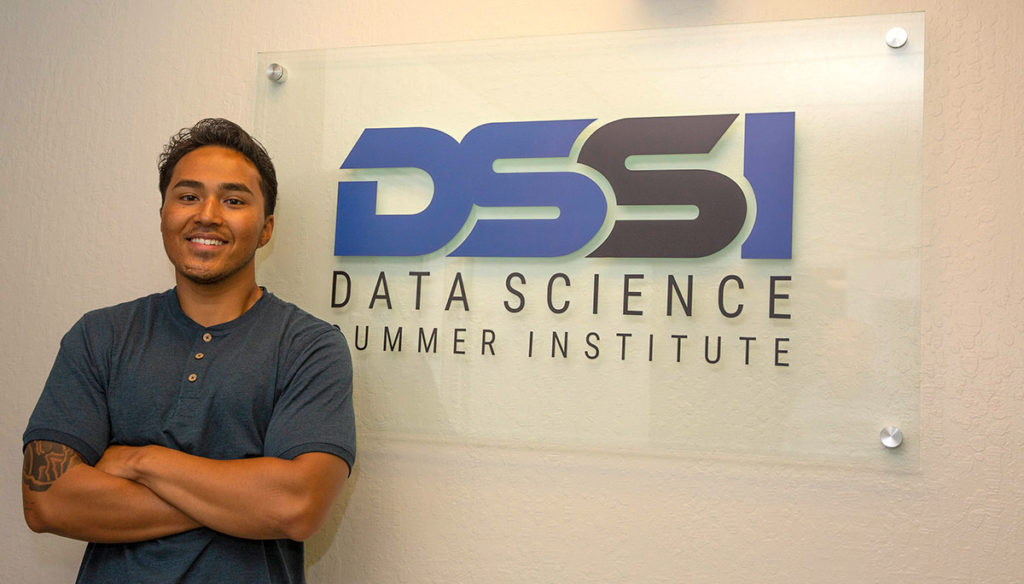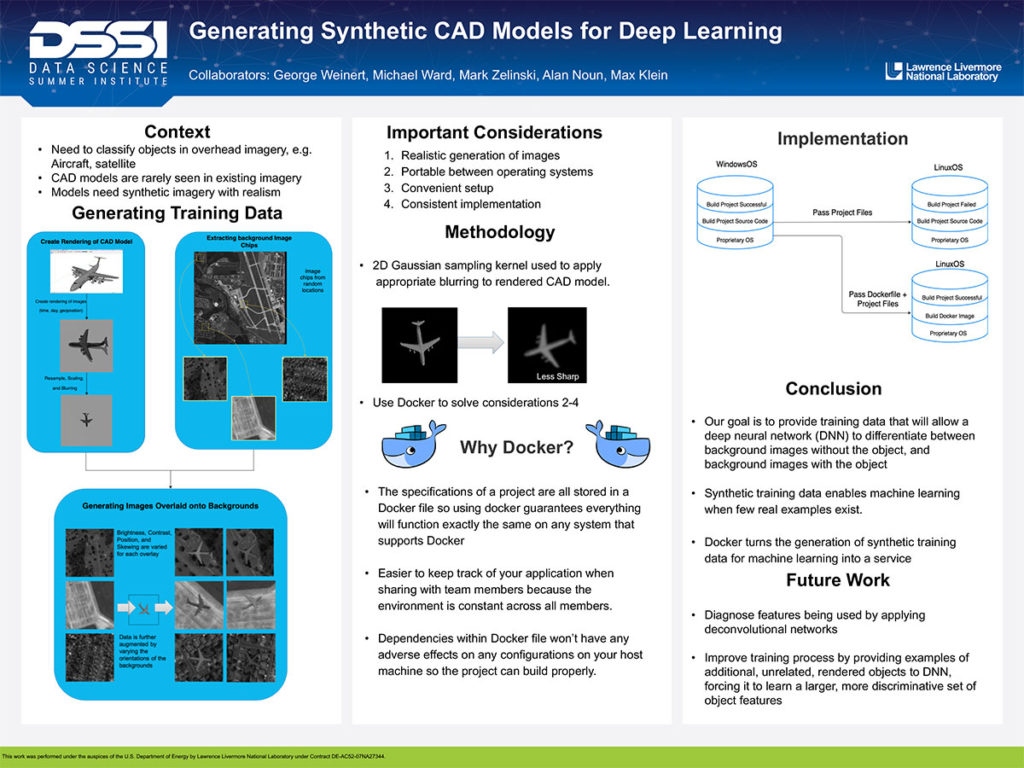
Alan Noun, a Computer Science major at Cal State East Bay and LLF’s first full-year scholarship recipient, recently finished his 9-week summer internship at LLNL’s Data Science Summer Institute. Under the mentorship of two Lab employees, Michael Ward and George Weinert, he developed neural network models using synthetic imagery for geospatial analysis.
We asked Alan to share some highlights from his summer research experience:
“In machine learning, a lot of data is required to ‘train’ neural networks to identify specific objects from background – classifying aircraft from background in overhead satellite images, for example. Neural networks need to ‘see’ thousands of examples in order to learn how to distinguish and classify objects in a manner useful to researchers.
The problem is that there is often insufficient data for precise learning to take place. To overcome this challenge, computer scientists create synthetic data for training purposes, which enables machines to learn when few real examples exist.
However, this gives rise to another issue: guaranteeing the synthetic data can be ported and run on different computer platforms used by project team members. Thanks to my mentors, I was able to solve this problem using a tool called Docker, which creates an isolated environment that remains constant no matter which machine is running the program.”
“I had no prior experience working with any of this. My mentors provided me with a concise breakdown of how the different parts of my project worked, as well as resources for learning about the tools we were using. Like most software engineers, my approach was to explore the plethora of resources available online to see how other engineers had resolved similar challenges. My mentors gave me a lot of freedom to solve the problems on my own. But they were always extremely helpful whenever I hit a brick wall.
By the end of the summer, I was finally able to get this isolated environment up and running. This environment turns the generation of synthetic data into a shared service that facilitates the work of different teams of computer scientists.
I’ve learned a lot during my tenure here. My biggest takeaway is that you should always take the time to fully understand a problem before tackling it, because making assumptions based on imprecise knowledge will cause you to go down a bottomless rabbit hole searching for answers that may well be wrong. To get the right answers, you need to ask the right questions.”
The Foundation gives special thanks to George Weinert and Michael Ward for their time and ongoing mentorship to Alan as he completes his degree this year. We look forward to following his progress!

